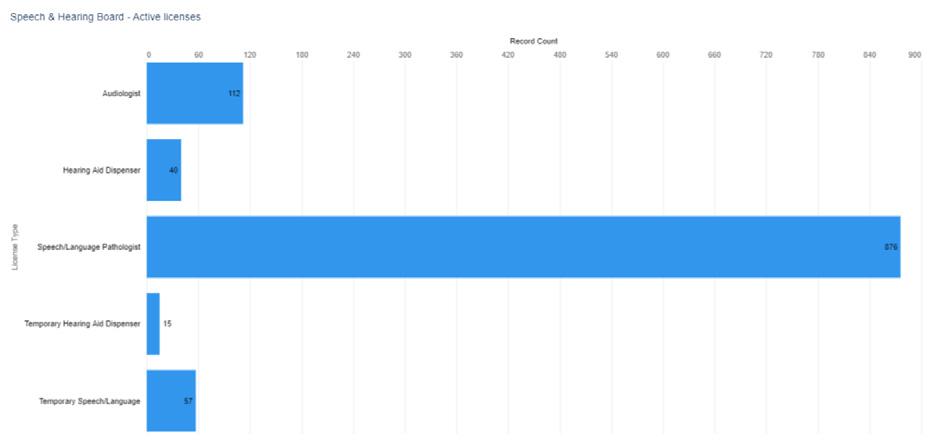
2 minute read
Board of Speech Pathologists, Audiologists, and Hearing Aid Dispersers
from DJPH - Delaware's Healthcare Workforce
by Delaware Academy of Medicine and the Delaware Public Health Association
The primary objective of the Delaware Board of Speech Pathologists, Audiologists, and Hearing Aid Dispensers is to protect the public from unsafe practices and practices which tend to reduce competition or fix prices for services. The Board must also maintain standards of professional competence and service delivery. To meet these objectives, the Board • develops standards for professional competency, • promulgates rules and regulations, • adjudicates complaints against professionals and, when necessary, imposes disciplinary sanctions. The Board issues licenses to speech/language pathologists, audiologists and hearing aid dispensers (see figures 1-3). The Board’s statutory authority is in 24 Del. C., Chapter 37.
AUDIOLOGIST
Audiologists are healthcare professionals who identify, assess and manage disorders of hearing, balance and other neural systems.1
HEARING AID DISPENSER
A hearing aid dispenser, or a hearing instrument specialist, is someone who is authorized by the state to measure hearing and to fit and sell hearing aids.2
SPEECH / LANGUAGE PATHOLOGIST
Speech-language pathologists (see figures 1-5) work with children and adults who have problems with speech and language, including related cognitive or social communication problems. They may be unable to speak at all, or they may speak with difficulty or have rhythm and fluency problems, such as stuttering.3
TEMPORARY HEARING AID DISPENSER
If one wants to dispense hearing aids in Delaware, they must obtain a Delaware Hearing Aid Dispenser license, with the exception of Delaware-licensed Audiologists.4
TEMPORARY SPEECH/LANGUAGE PATHOLOGIST
Good for one year, this temporary license allows one to practice as a SLP while their Clinical Fellowship Plan is completed. There are additional requirements listed on the DELPROS website.5
Figure 1. Active Speech Pathology, Audiology, and Hearing Aid Dispenser Licenses by Type*, N=1,100
* an active license does not guarantee an individual is actively seeing patients.
Figure 3. Active License Speech Pathology, Audiology, and Hearing Aid Dispersers by Birth Year
* According to the Social Security Administration “Full retirement age is the age when you can start receiving your full retirement benefit amount. The full retirement age is 66 if you were born from 1943 to 1954. The full retirement age increases gradually if you were born from 1955 to 1960, until it reaches 67. For anyone born 1960 or later, full retirement benefits are payable at age 67.”
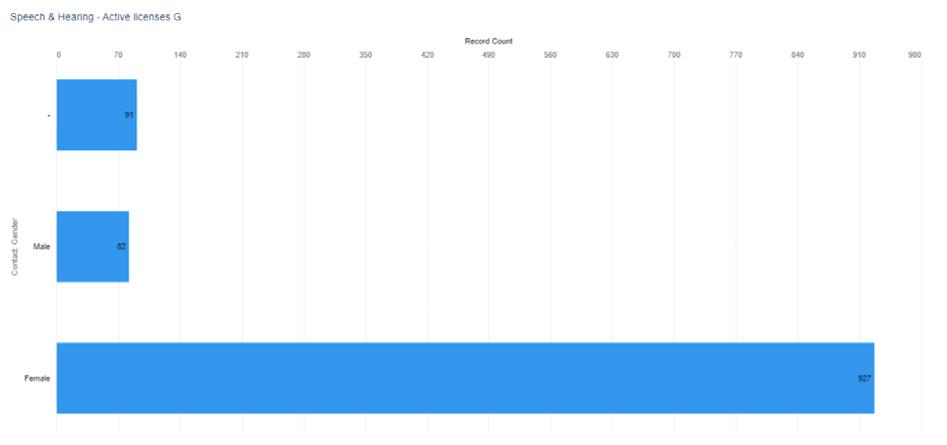
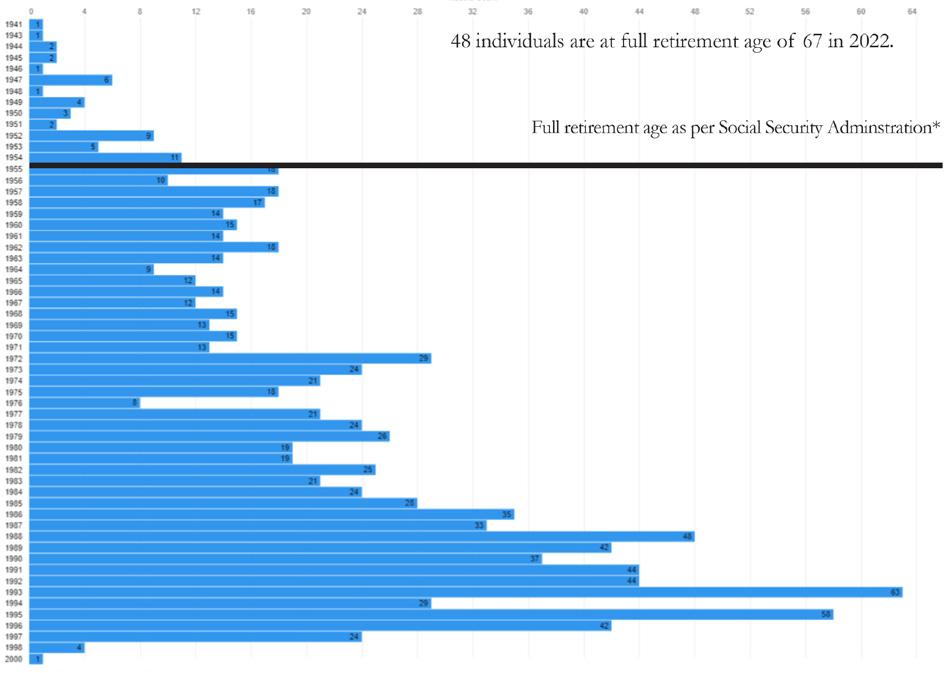
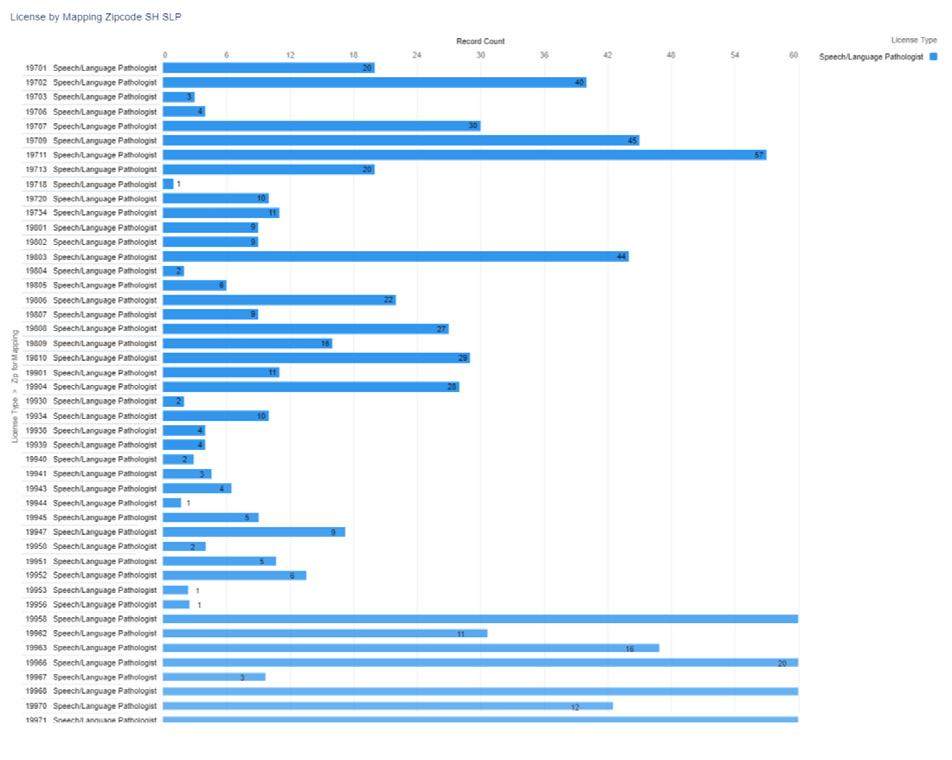
Figure 5 shows most, but not all, ZIP codes due to scaling limitations. Hot spots are employed to bring perspective to viewing the overall map and distribution of healthcare professionals and should not be interpreted has valuing value without referring to the numbers listed in the chart above.
Figure 5. Visual Distribution of Active Speech/Language Pathology Licenses by ZIP Code
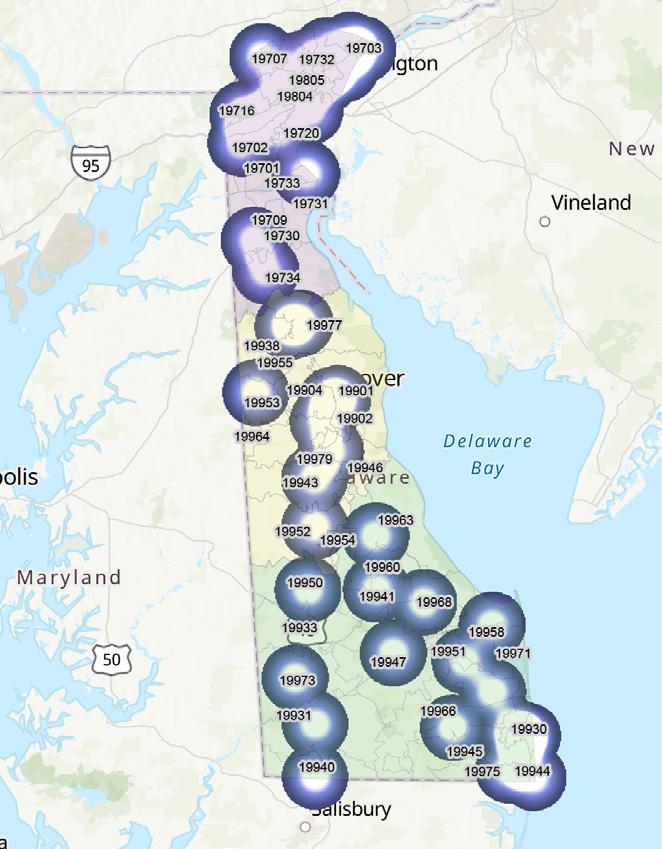
REFERENCES
1. Johns Hopkins Medicine. (n.d.). What is an audiologist?
Retrieved from: https://www.hopkinsmedicine.org/health/conditions-and-diseases/hearing-loss/what-is-an-audiologist 2. The Hearing Center. (2021, May). What is the difference between an audiologist and a hearing aid dispenser?
Retrieved from: https://thehearingcentermcc.com/patient-resources/what-is-the-difference-between-an-audiologist-and-a-hearing-aid-dispenser/ 3. US Bureau of Labor Statistics. (2022, Aug). Speech-language pathologists. Occupational Outlook Handbook.
Retrieved from: https://www.bls.gov/ooh/healthcare/speech-language-pathologists.htm 4. Delaware Division of Professional Regulation. (n.d.). Hearing aid dispenser.
Retrieved from: https://dpr.delaware.gov/boards/speechaudio/had/ 5. Delaware Division of Professional Regulation. (n.d.). Speech/language pathology licensurer.
Retrieved from: https://dpr.delaware.gov/boards/speechaudio/slpathology/





